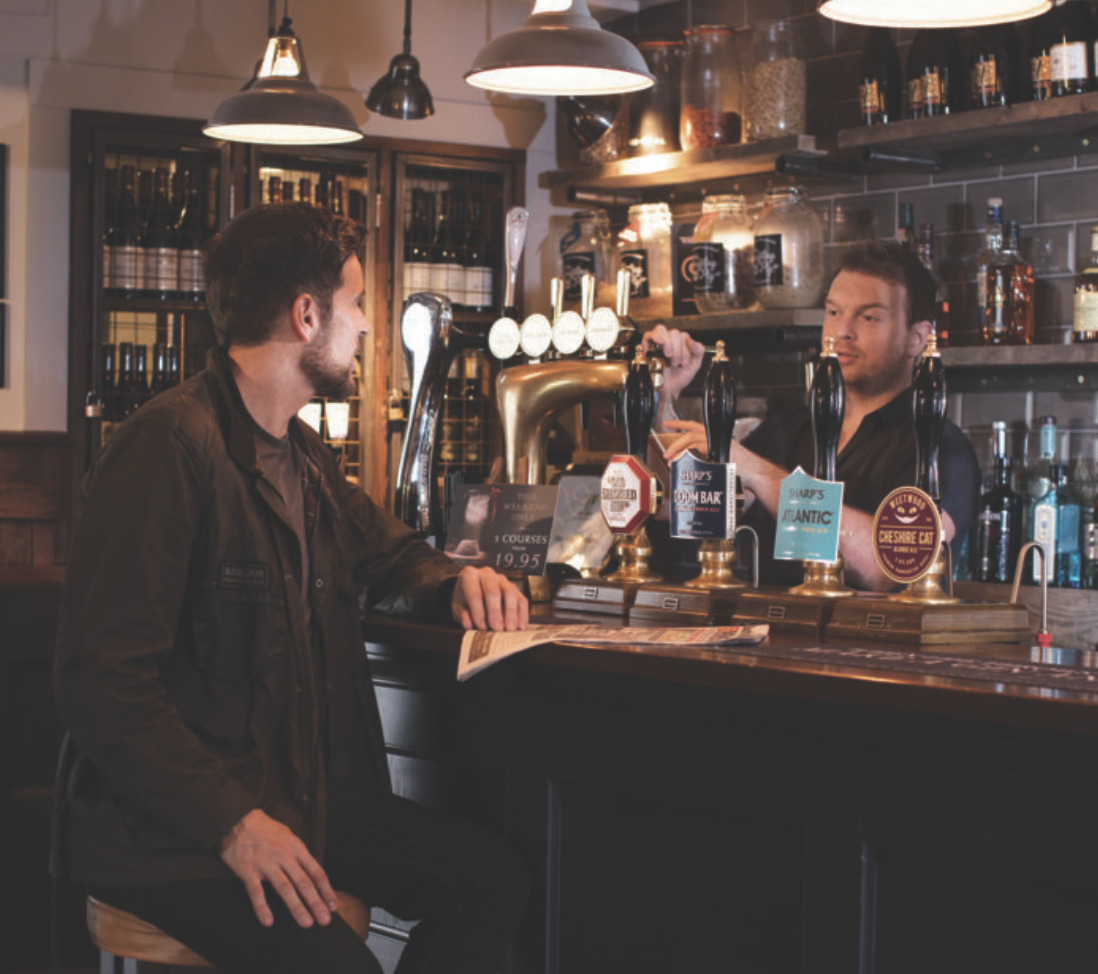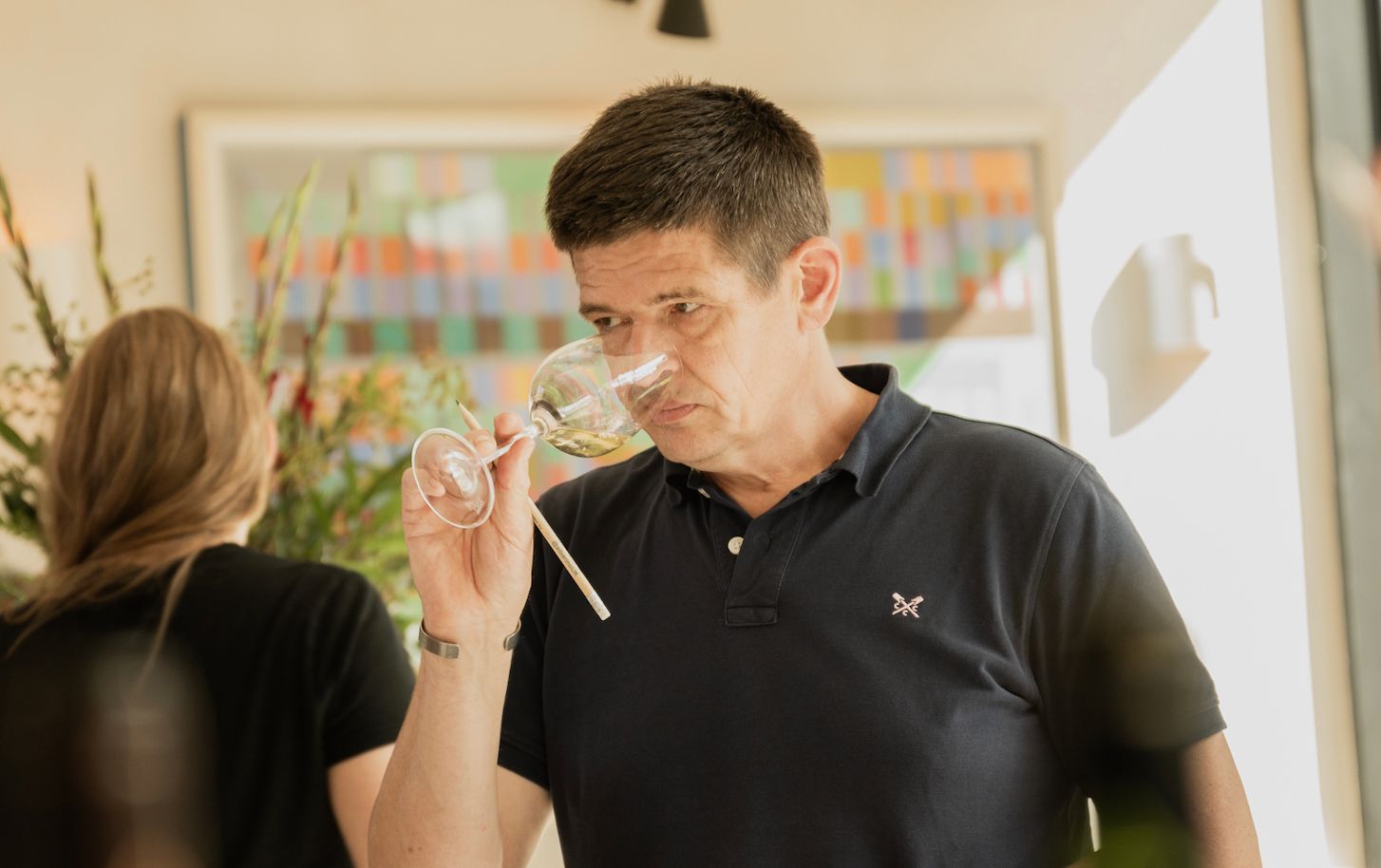“The last three or four years have been more important than ever in terms of the service provided by the Licensed Trade Charity,” says Punch Pubs’ HR director, Laura Cavendish.
The Licensed Trade Charity has been offering support to publicans, restaurateurs and the overall on-trade for over 200 years, but arguably, the help it provides has never been more in demand from the increasing number of both current and former hospitality industry workers who find themselves in straitened circumstances due to the ongoing cost of living crisis, hard on the heels of the Covid pandemic.
Going into the New Year, the sector has been impacted by a further wave of high profile sector closures on the back of record losses in 2023.
Wales has been hardest hit, closely followed by London, according to a recent study by real estate analysts Altus Group, who claim 383 pubs closed across the UK during the first six months of 2023, almost matching the total for the whole of 2022.
The reasons are multifarious, but soaring rents, the high cost of living, including rocketing energy bills, and the ongoing impact of Covid and Brexit have all contributed to the closures, forcing many people out of work.
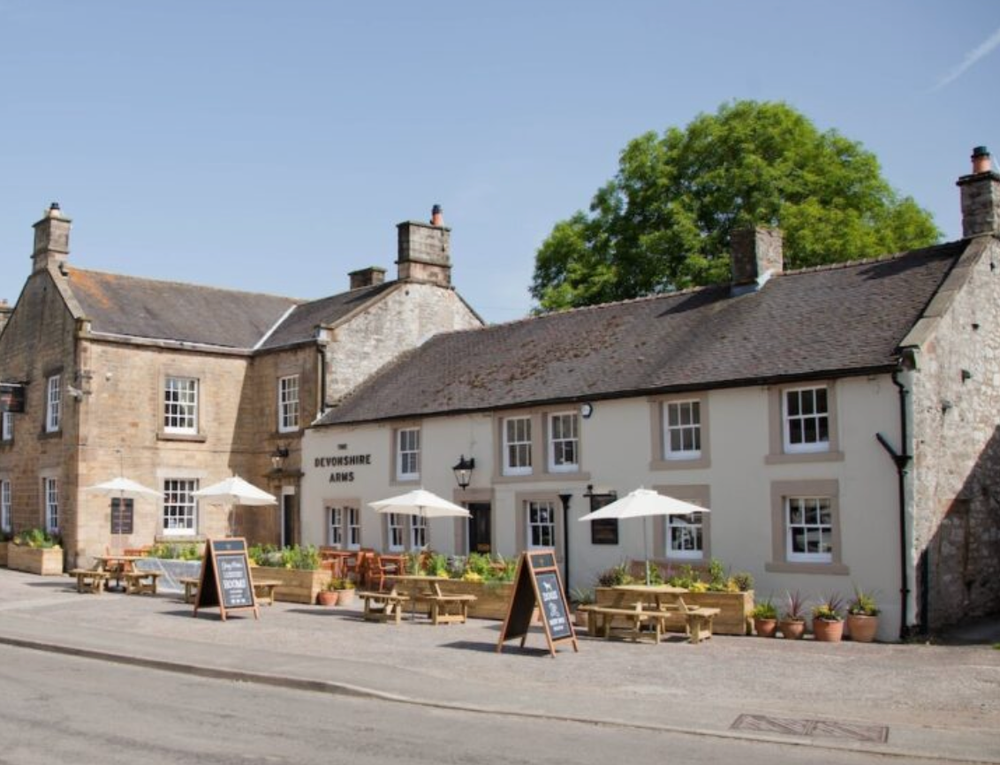
The pub and overall hospitality sector continues to be hit by soaring costs which is where having the support of the Licensed Trade Charity – if needed – can be very reassuring
Punch Pubs, one of the UK’s biggest pub companies in the country with almost 1,300 venues within its stable, the majority of them leased or tenanted, community-led wet outlets in rural or suburban areas, is no exception, as HR Director Laura Cavendish confirms.
“This is probably the toughest time the pub industry has had to face, but we are exceptionally resilient as a sector and find ways to continue,” she says. “Our pubs have been through a tumultuous time in recent years, but we have and continue to work in partnership to support them both financially and emotionally.”
Punch Pubs’ publicans are not directly employed by the company, (they are either self-employed tenants, lessees or m management partners), so the Licensed Trade Charity has been an indispensable source of help and advice for workers facing difficult circumstances, she says.
“We have a long-standing relationship with the LTC, and because all of our publicans are self-employed entrepreneurs, the charity has been an invaluable resource of independent support that we’ve been able to signpost to our teams to access if we haven’t been able to directly support them ourselves,” she explains. “Whether it’s financial grants, specialist advice or emotional support via counselling, the LTC has been a great source of help to our operators, and that’s why we continue to support them and publicise their work.”
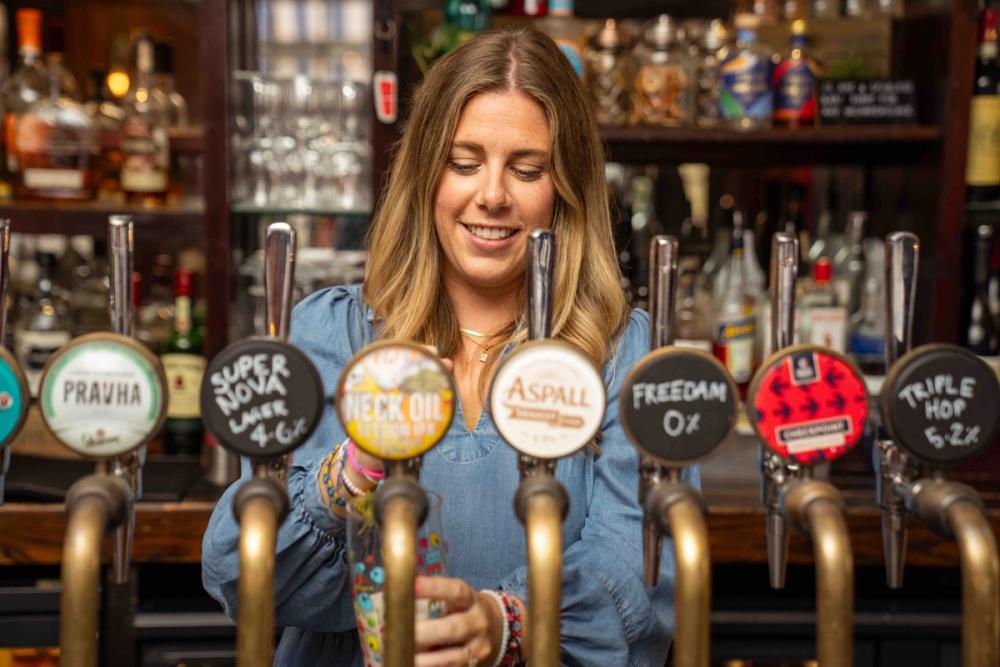
Kayleigh Fox who heads up marketing and fundraising at Licensed Trade Charity
Key role
Cavendish believes the LTC’s role is vitally important, perhaps more so now than at any other time in its long history.
“The last three or four years have been more important than ever in terms of the service provided by the LTC,” she says. “We feel very strongly about the support they can provide our partners in our pubs, particularly when they might need a different voice and an independent person to speak to.”
Pubs, she points out, are at the very heart of local communities, and during Covid, for example, they played a crucial role in transforming into corner shops by selling essential groceries, or delivering food to vulnerable people who had to self-isolate.
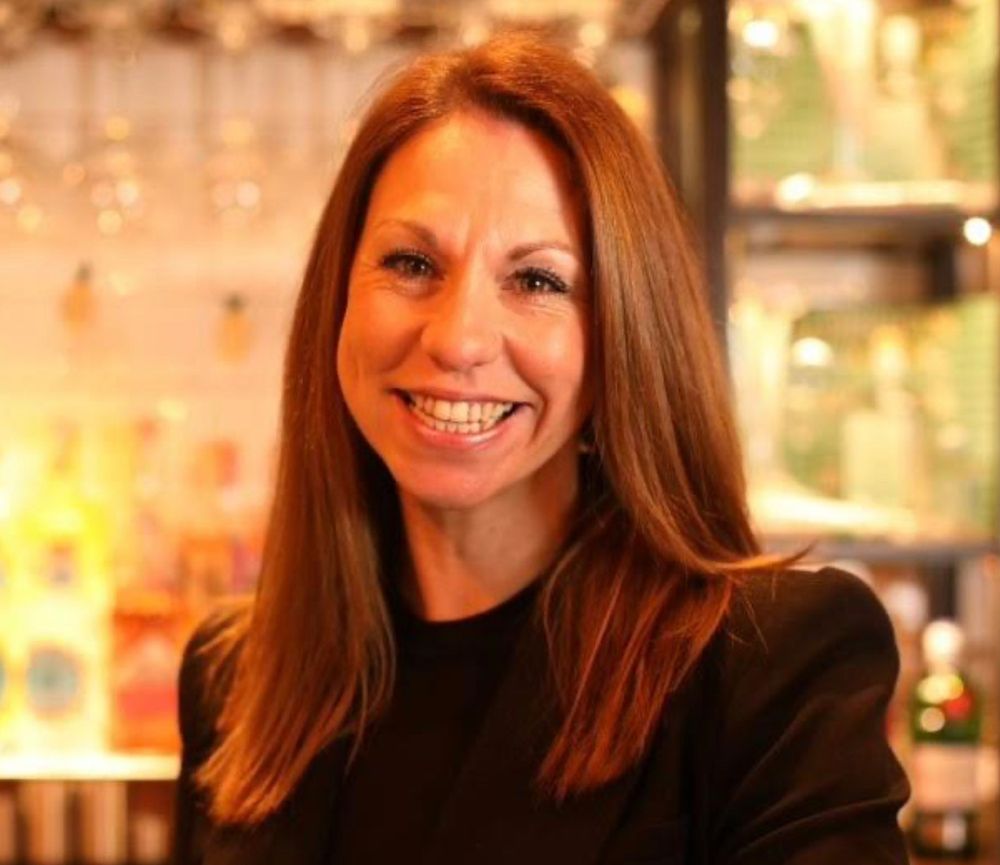
Punch Pubs’ Laura Cavendish says as a business it is committed to supporting the work of the Licensed Trade Charity in helping anyone in the hospitality sector that is hit by hard times
“We have never had such a crisis where we haven’t been able to open our doors, and access the very people who are the essence of why we exist. It’s therefore essential that those individuals who are at the heartbeat of their communities get the support they need when they need it,” she says. “Our publicans and their teams did so much during Covid, and that took such a strain on people both emotionally, financially and physically. It really took its toll.”
Energy surge
Even after pubs were permitted to reopen and communities returned to their pubs, the energy crisis reared its head, which has proved to be as bad, if not worse, financially as Covid.
“Pubs faced an enormous increase in energy costs, so not only was it difficult to pay their bills, but to run their business to serve their community was costing them more than they could make as a profit.”
Inevitably, she says, some pubs across the industry were forced to close, having used up their financial reserves during Covid, with nothing left to tide them over and meet escalating costs.
The extreme conditions the sector has undergone over the last few years have meant the weighting of different types of support accessed, and the profile of people needing help has shifted, Cavendish explains.
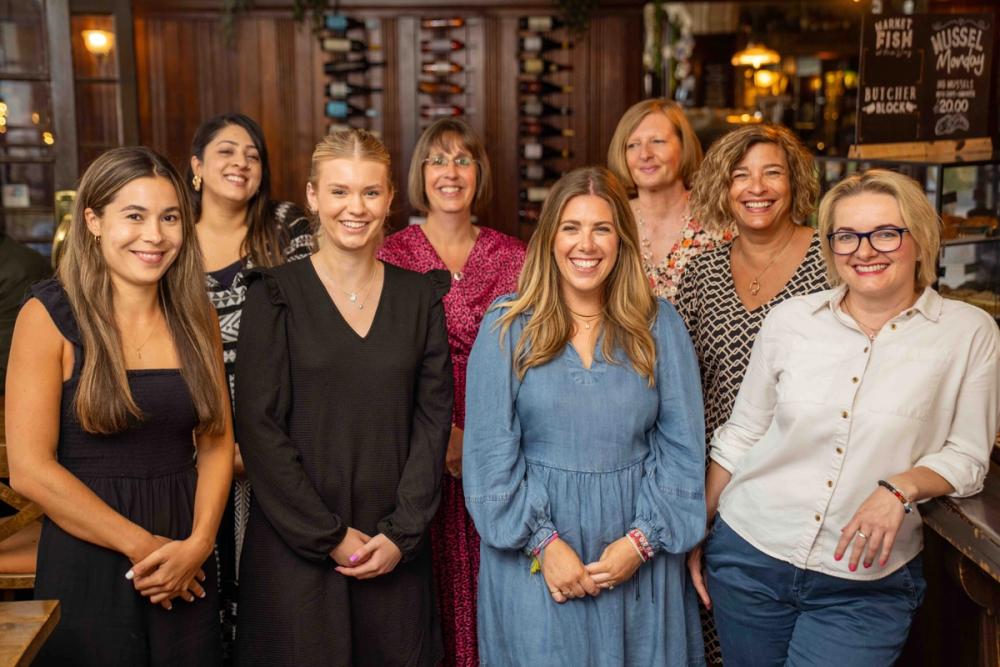
Members of the team at the Licensed Trade Charity
“There has been a huge transition, as although the LTC is really well equipped at helping older people, the younger generation are now generally much better at asking for help than their older counterparts, and the charity is really delivering the support needed with this demographic, where their employer may not be in a position to support,” she says. “The LTC are also in a position to provide aftercare to people who may have left the industry five or six years ago, which we as a business are not able to do.”
All this adds to the demands on the LTC’s time and resources, and is yet another reason to support the charity, says Cavendish.
“The individuals who work in our sector aren’t just delivering a service or food and drink, they often act as agony aunts and counsellors, the become friends with their guests and will often take responsibility for raising money for people in need – they find ways to give to others, and the toll on individuals can be great, but they are often not very good at asking for help themselves. Having a specialist charity like the LTC is vital,especially as its remit is so broad. It does not stipulate you have had to have held a specific role, or have run a pub for 30 years before becoming eligible for help, which I think is quite unique for a charity.”
Festive challenges
Taking stock of what is typically considered the most important time of year for the on-trade, Cavendish notes that Christmas and the overall festive period can be a particularly challenging time in the sector, particularly for workers’ mental health.
“It would be an easy assumption to make that it’s the best time of year for the industry, but we are still recovering from the impact of Covid and adapting to evolving consumer behaviour. During these busy periods, people need to understand where they can get support when it’s needed – it’s easy to forget when you are busy. It’s been an encouraging period for the business, and we’re very aware that the LTC support available to our teams has played an important part in helping staff at a site level succeed. There is also no getting away from the fact that those inflationary pressures and cost headwinds still remain, so its good to know the LTC can support our teams if they’re feeling the weight of these pressures.”
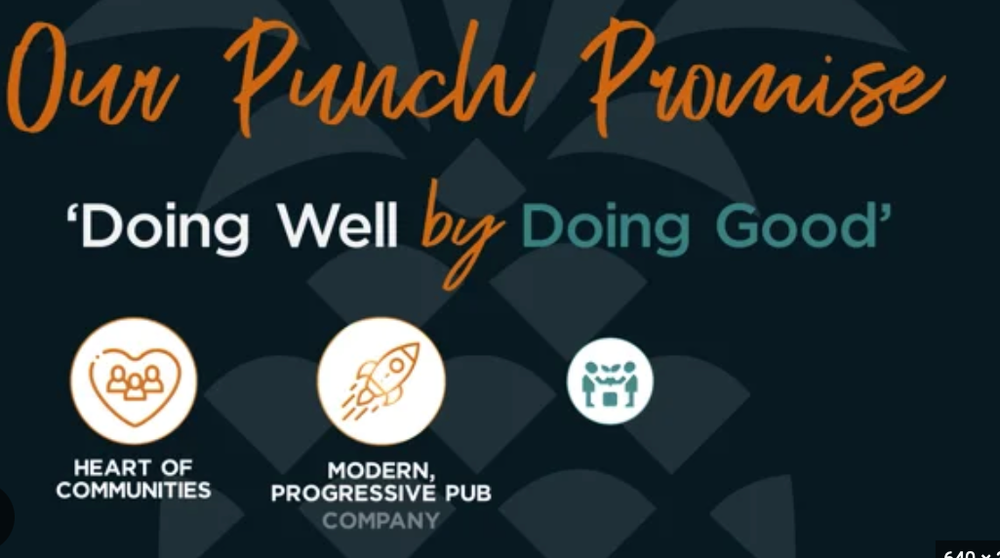
The Punch Promise scheme is part of its wider ESG commitment to support its people
Cavendish says the company holds regular meetings with Punch employees to ensure its people are aware of the support that is available to them as well. For example, the employee-led Push the Pineapple initiative, which launched around 18 months ago and is aligned to the company’s wider ‘Punch Promise’ (its ESG Strategy) and is underpinned by its ‘Doing Well, By Doing Good’approach. Through Push the Pineapple, Punch people can discuss and share their experiences and find support at work on topics including menopause, mental health, and anything that impacts their social wellbeing. “This has enabled us to build up our policies and provide support and education through our teams,” adds Cavendish.
Given the importance of the support offered by the LTC, Punch Pubs ensures its publicans, management partners and head office staff, all of whom are eligible for LTC assistance, are made aware of the help that’s available to them.
One of the ways this is communicated to its operators is via the Punch Buying Club, an online platform which features the various services that the LTC offers. Additionally, Punch’s own in-house publication, The Round, is a magazine distributed both digitally and in print to all Punch pubs and will often feature LTC and the services it provides, at different times of the year.
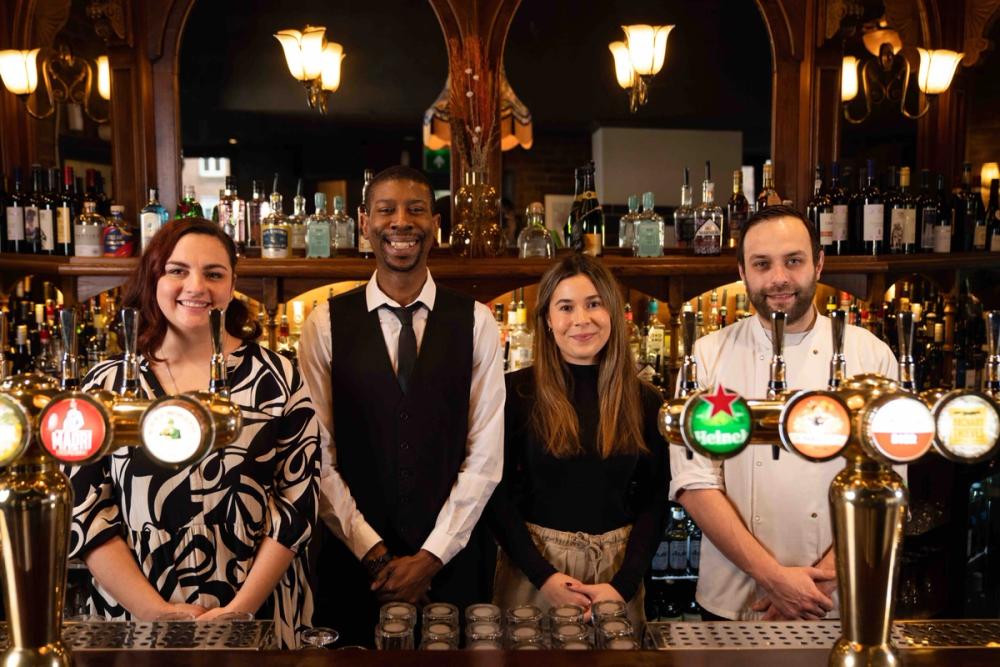
The Punch Pubs team at Square Tavern in London
As part of the Push the Pineapple initiative, Punch also produces a podcast which helps open up topics of conversation that people wouldn’t necessarily think they would have at work. In 2024, Punch is starting to take the Pineapple Podcast to its pubs so that they can share their experiences and support subjects that can and do impact anybody. Through the podcast, Punch again shares information about the LTC and hopes soon to partner with the charity and have a representative on the podcast to talk about the work it does.
Hosted by one of the company’s operations managers, Cavendish says it is a great platform for people to talk about what’s on their minds and to share their experiences.
“If it was too corporate and structured it simply wouldn’t work. It would be far less appealing if we said you need to learn about this, and you must go on this course. We rely on our teams and pubs to dictate the agenda and what we are going to discuss.”
Punch Pubs also supports a number of other campaigns to help its staff both in work and at home, including advocating the WalkSafe app campaign, which aligns with the company’s lone worker policy, to support individuals who travel home from work or pubs alone at night, to ensure they are able to get home safely.
“Working in pubs at night can be quite challenging, so this is an example of us teaming up with a start-up business to support our internal policy for our employees and also share this with our pubs who use it to help their teams.” explains Cavendish.
The company also partners with the mental health charity MIND, achieving a gold standard in Mind’s Workplace Wellbeing Index in only 12 months. “We are exceptionally proud of this achievement – in essence, our employees were surveyed by MIND and asked how good we are at supporting their mental health, and that is what the gold standard is awarded for.”
How Punch Pubs supports the LTC
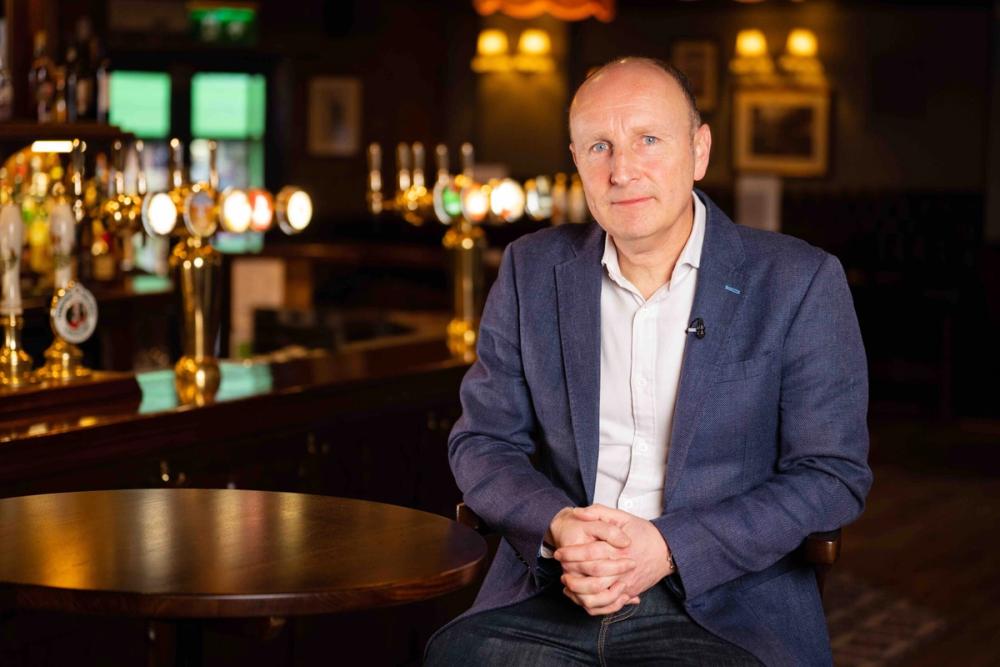
Clive Chesser, Punch Pubs chief executive, was part of the industry team that helped raise money for Licensed Trade Charity by cycling across Sri Lanka
As well as spreading the word about the LTC and its work, Punch Pubs supports the charity in a variety of different ways, directly via fundraising, and by other means.
A number of its head office staff participate in the Pedalling for Pubs charity bike ride. Chief 0perating 0fficer, Andy Spencer, for example, joined 26 other riders cycling 335km across Jordan in 2022, raising £275,000 for both the LTC and Only a Pavement Away charity, which helps people who are facing homelessness by offering career opportunities within the industry.
In 2023 he was joined by chief executive officer, Clive Chesser, and they were both part of the industry team that cycled 450km from Sri Lanka’s east to west coast, raising a further £400,000 for the charities. Strategic corporate affairs & ESG lead, Jon Dale, also took part in a 240km Pedalling 2 Pubs ride across the Yorkshire Wolds last summer.

The hospitality team that helped raise money for Licensed Trade Charity by cycling across Sri Lanka
The company is committed to doing the same again this year, with members of the Executive Team signed up to take part in Pedalling for Pubs 2024, which will be held in Kenya in March and closer to home in Devon in May. It also looks to get as many staff involved as possible by setting up exercise bikes at its Head Office that employees can use to ride and raise money.
Punch also provides free room hire for the LTC in outlets across its extensive pub network around the country, available for the charity’s regional meetings. It also invites the LTC to take part in its annual conference.
“It is very easy just to focus on the pub team, but we also employ 300 people directly who are eligible for LTC support should they ever need it,” says Cavendish.
The LTC’s latest campaign, Because everyone needs a little TLC, was shot at one of Punch’s venues in London.
“The Licensed Trade Charity is an incredible organisation, and we are extremely proud to be associated with it and to be able to do our bit with both fundraising and increasing its profile,” says Cavendish.
- You can find out more about the work the Licensed Trade Charity does at its website here.
- You can find out more about Punch Pubs here.
